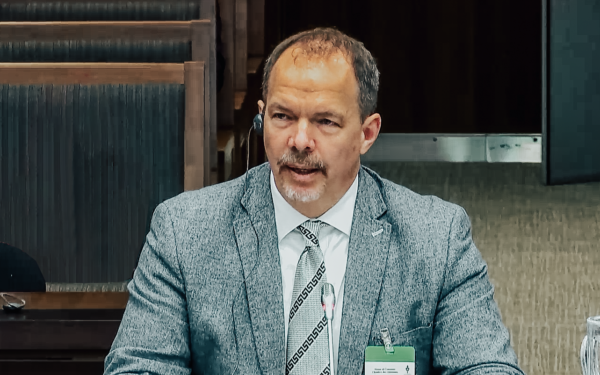The Internet as we know it is dead. Let me tell you why.
The Internet as we know it is dead. Not long ago, I would have argued the opposite to be true. The free and open Internet was in what I felt to be a strong position just last month. The open democratic nations of the world had just come off the success of defending the multi-stakeholder model at the International Telecommunication Union (ITU) coordinated World Conference on International Communications (WCIT-12). And, as I discussed in a previous post, I was cautiously optimistic about the future of ICANN, the organization at the centre of the Internet governance ecosystem.
These were both signs that the Internet – and in particular the Internet governance ecosystem – was reaching a strong and healthy point. Now we are faced with the fact that the world’s most powerful democracy, the United States, has been systematically monitoring the Internet activity of both its own citizens and those of other nations. The implications of the NSA’s PRISM surveillance program on the Internet governance world can best be explained by revisiting the events at WCIT-12. WCIT-12 was a landmark meeting in the history of the Internet. A new version of the regulations that govern telecommunications activities globally was proposed and soundly rejected by many of the world’s democratic nations for provisions that would have extended the reach of the ITU over the Internet. This rejection was widely heralded as an endorsement for the current governance model applied to the Internet – the multi-stakeholder model – over a multi-lateral, United Nations model of governance.
I have articulated my reasons for supporting the multi-stakeholder model over a multi-lateral one many times, but my argument boils down to this: no other governance model puts the people and organizations that directly benefit from the Internet’s success in charge of it. The multi-stakeholder model is the only governance model that can support the development of a free and open Internet that has the potential to provide the world with all of the benefits it has to offer. Other models, including the multi-lateral model, are too open-to-influence by issues and actors that exist outside of the Internet ecosystem. Full stop.
WCIT-12 is just one example in a decade-long struggle for control of the Internet between – and, yes, this is an over-simplification but it works – open and transparent democratic nations and more authoritarian nations. One of the main concerns at WCIT-12 – and voiced by the U.S. – was that new regulations could enable a system where (as I blogged at the time) “countries which do not have a strong commitment to human rights and democracy” would be able to put much of the global Internet traffic under significant surveillance.
Fast forward eight months, and we’re dealing with the news about the PRISM surveillance program. The irony of the fact that the country that led the charge against the new regulations for fear that it would give nations the authority to monitor Internet activity (among other reasons) is, of course, palpable. Beyond the irony, the implications of the PRISM program run deep. The fact is the United States government has unilaterally invalidated the argument that the Internet must remain free and open for the good of the global community. While the U.S. has been doing its best to ensure nations are unable to monitor Internet activity, it has been working with the private sector in an effort to gather and monitor targeted Internet activity. At the very least, this is a nail in the coffin of the multi-stakeholder model. They have effectively paved the way for the next attack on the multi-stakeholder model.
The result? Eventually a Balkanized Internet. An Internet that no longer provides access to global markets for business in the developing world. A global Internet that excludes people fighting authoritative regimes for basic human rights. An Internet that is no longer the incredible driver of positive economic and social change. This is the first blog in a series of three I will be posting on this subject. In my next post, I will be discussing the apparent apathy among the citizens of open and democratic nations (Canada included) with regard to online surveillance.
Byron Holland (MBA, ICD.D) is the president and CEO of the Canadian Internet Registration Authority (CIRA), the national not-for-profit best known for managing the .CA domain and developing new cybersecurity, DNS, and registry services.
Byron is an expert in internet governance and a seasoned entrepreneur. Under Byron’s leadership, CIRA has become one of the leading ccTLDs in the world, with over 3 million domains under management. Over the past decade, he has represented CIRA internationally and held numerous leadership positions within ICANN. He currently sits on the Board of Directors for TORIX, and is a member of the nominations committee for ARIN. He lives in Ottawa with his wife, two sons, and their Australian shepherd, Marley.
The views expressed in this blog are Byron’s opinions on internet-related issues, and are not necessarily those of the organization.




